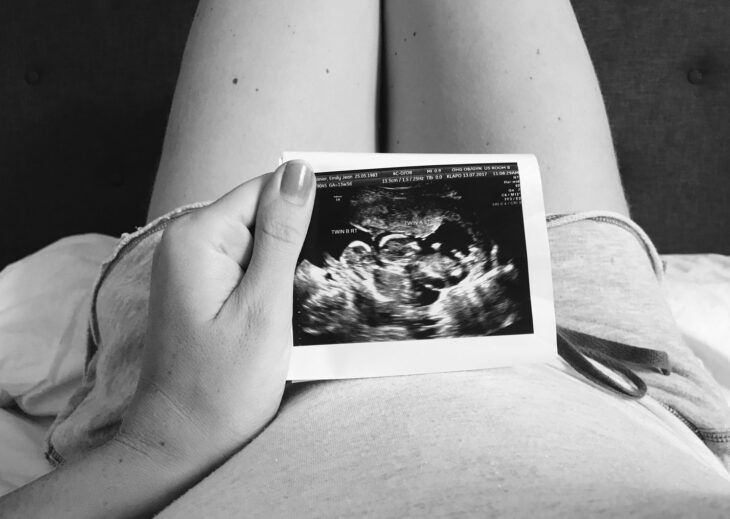There are in excess of 100,000 miscarriages per year in Australia alone. That’s a staggering figure which is unknown to the majority of the population.
The simple truth is that people don’t think about miscarriages or even the difficulty of getting pregnant unless they find themselves in that situation.
The good news is that there are steps you can take to reduce the risk of miscarriage; although it is impossible to eliminate the risk completely.
Contents
What Is A Miscarriage?

Source: Embracing Ottawa
In basic terms, it’s the loss of a fetus before it reaches the 20th week of pregnancy. In most cases the miscarriage happens in the first 12 weeks, this is the highest risk stage. In fact, many people don’t even realize they have miscarried, because they didn’t even realize they were pregnant. That potentially increases the number of miscarriages that occur each year.
It also emphasizes why it is so important to listen to the advice of a reputable obstetrician from Sydney which is drnicoleobgyn.com.au. When trying to become pregnant or you are actually pregnant it is essential to take every precaution possible. The aim is to increase the likelihood of the pregnancy going full-term.
It is worth noting that miscarriages generally occur because of genetic abnormalities. In all likelihood, if these types of pregnancies continued to full term the fetus would develop with severe abnormalities or disabilities. There is no way of preventing this type of miscarriage.
Steps To Prevent A Miscarriage From Happening

Source: BellyBelly
In order to reduce the risk, or even prevent, any other type of miscarriage you need to follow some simple steps.
-
Exercise
If you have had a miscarriage before then experts recommend you don’t undertake high-intensity exercise. However, medium to low exercise is not just acceptable, it’s a good idea. This means any activity that leaves you out of breath but still able to talk.
Exercise increase blood flow around your body, effectively boosting the supply of oxygen and nutrients to all your organs and to your fetus. Oxygen and nutrients are essential to the proper development of your unborn baby.
You can keep exercising throughout the pregnancy, simply listen to what your body tells you is acceptable.
-
Nutrition
You probably already know that you should be taking 400mg of folic acid every day. Ideally, you should have been taking this for at least 2-3 months before you became pregnant. This helps with the proper development of your fetus.
But, you should also consider all the other nutrients that make a balanced diet. Make sure you’re getting enough vitamins, calcium, protein, and even carbohydrates. Your baby needs these compounds as well.

Source: Dr. Ali Ghahary
-
Manage Your Weight
Eating right will help you to maintain your weight. This isn’t about making it easy to regain your body shape after pregnancy. Being pregnant is not an excuse to eat excessively. If you eat too much and start to gain weight your metabolism is likely to slow, reducing the flow of nutrients to your unborn baby. This will increase the likelihood of them not getting the nutrients they need and can cause complications with the birth.
The same is true if you don’t eat enough while pregnant. It’s important to keep balance in your eating habits.
-
Reduce Stress
Stress is bad for you. It increases your cortisol levels. This is the hormone that prepares you to fight or flight. It can be useful. But when it’s released it inhibits the creation of other hormones in your body. That can be detrimental to your body looking after the fetus.
While it can be difficult to avoid all stressful situations you need to look at what causes you stress and eliminate as many of these incidents as possible.
It’s also a good idea to take steps to eliminate any stress you do experience. Meditation can help, but some people prefer yoga or even reading a good book. The aim is to give yourself an opportunity to escape the real world for a short while.
If you choose to read consider reading out loud as your fetus will hear your voice.

Source: Flo
-
Avoid Smoke & Alcohol
You probably already know that alcohol and smoking are not good for pregnant women. You may not have realized that they can negatively affect the fetus. Smoking is known to stunt the growth of your child, while alcohol inhibits general development.
Both of these effects will increase the likelihood of a miscarriage as any abnormality will decrease the chances of the baby growing to full term.
You may even find it liberating to give up alcohol and smoking.
-
Don’t Do Drugs
Just as alcohol and smoking are bad for, so are drugs. Drugs alter your chemical balance in your body and can seriously affect the growth of your fetus. They can also reduce your body’s ability to provide the best possible environment for your fetus.
Drugs are also likely to make it harder for you to take all the other steps that will reduce or prevent a miscarriage. You can even make your baby addicted to drugs, if they make it to full term.

Source: Medical News Today
-
Keep Immunizations Up To Date
It is important that you follow your medical professional’s advice regarding immunizations. Keeping them up to date will help to protect you and your unborn fetus from complications.
Your doctor can advise regarding when it is safe to have immunizations and when you should avoid them, it’s a good idea to listen to them.
Final Thoughts
The risk of a miscarriage is highest in the first 12 weeks of the pregnancy. In many cases, you won’t be aware that you’re pregnant until you are 6-8 weeks gone. This means, if you are trying to get pregnant, you should adopt the above lifestyle tips now.

Source: Undefining Motherhood
They will reduce the risk of a miscarriage happening and help you to stay healthy throughout the pregnancy. However, just because the risk of miscarriage diminishes after 20 weeks, you should still continue to follow the above tips. They aren’t just important for avoiding miscarriages, they will help you and your baby to stay healthy, which is all you want!
